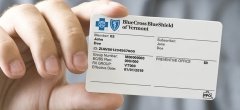
Understanding Your Blue Cross Member ID Card
You present your insurance card when you go to the doctor's office or visit a pharmacy. You know it's important and you need to have it, but why?
Empower your wellness journey with the latest health insights, inspiring stories, and essential insurance tips from Blue Cross VT.

Learn how to use our enhanced cost estimate tool.

You present your insurance card when you go to the doctor's office or visit a pharmacy. You know it's important and you need to have it, but why?

For decades, we have stood alongside Vermonters—working for better health care. But today, that mission is being pushed to the brink by unsustainable increases in health care costs.

Catch up on our latest news – from our events and programs to company and industry updates.

We host and sponsor community events that are focused on helping Vermonters get outside each season and experience the beauty of Vermont.